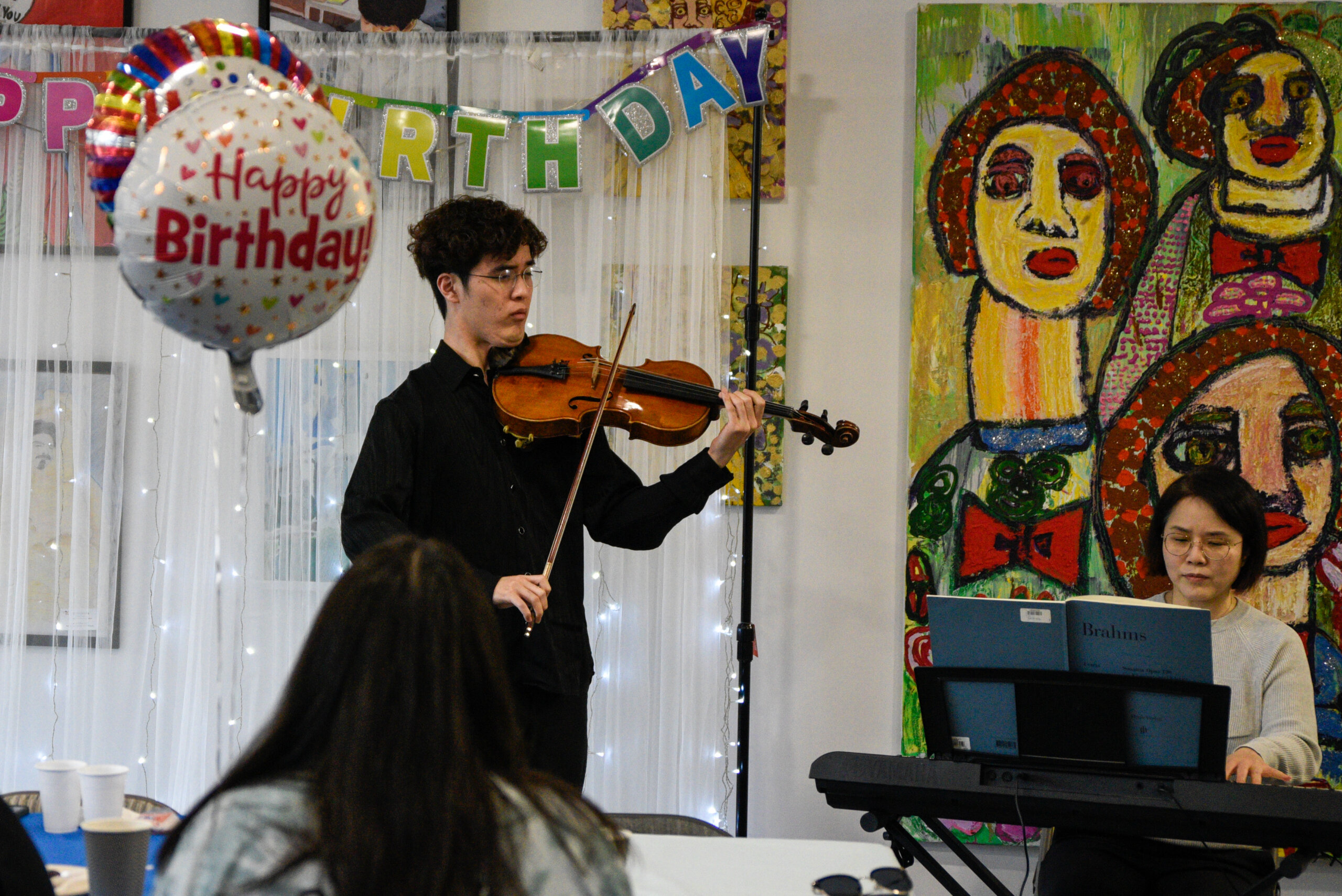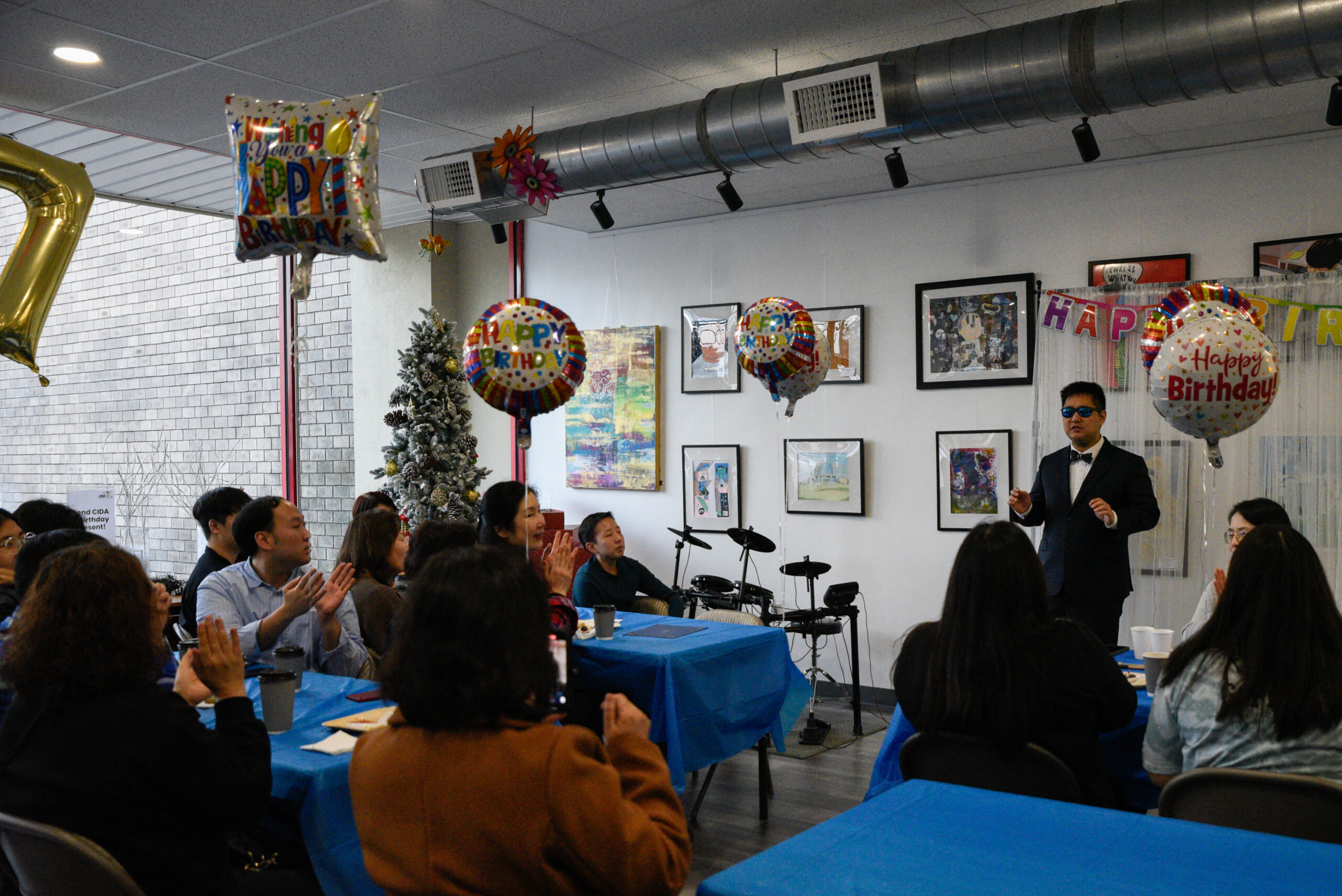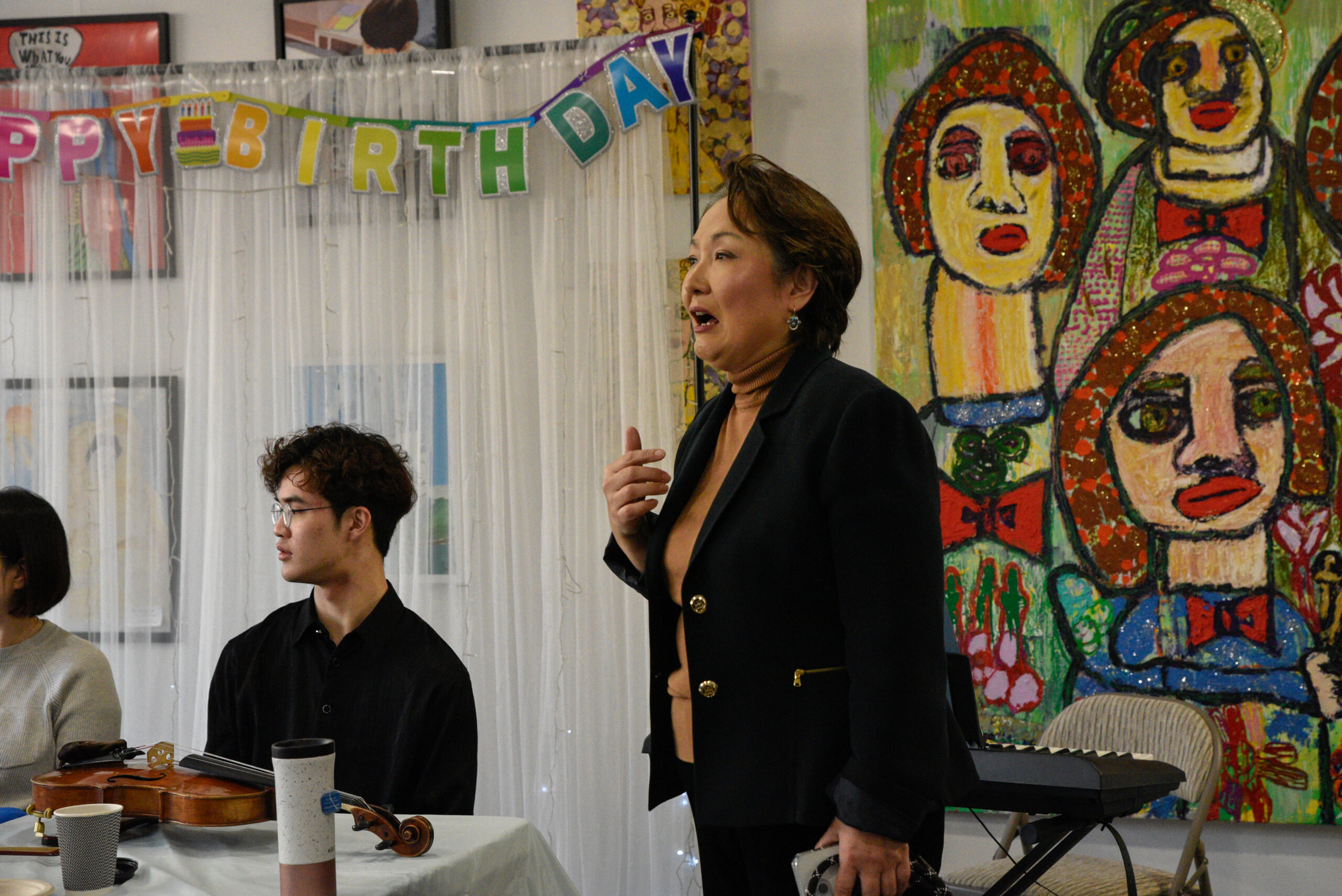CIDA Community Center in Bayside, a nonprofit organization predominantly serving Asian Americans with developmental disabilities and their caregivers, marked seven years of serving the community last week.
The center held a birthday celebration on Friday, Dec. 8, out of its space at 38-50 Bell Blvd. Attendees enjoyed food and musical performances put on by members.
CIDA primarily works with individuals on the autism spectrum, but the organization also serves individuals with down syndrome and those born with physical ailments. Much of the non-profit’s work is also geared toward supporting the caregivers, who are often parents navigating the special needs educational system and figuring out how to set their children up for a self-sustaining future for the first time.
The majority of the organization’s members are Korean, with many unable to converse in English. CIDA offers these members with one-on-one translation and mediation services, which are crucially helpful. The organization is also able to send an advocate for the caregivers, who are often the parents, to meetings that dictate what kind of services children will receive in the public school system.

Seven years ago, CIDA opened a 600-square-foot space with no windows near the current location. While that space is still utilized for administrative needs, in March 2022, the organization moved into a much larger light-filled space that has space for additional programs and support groups.
“In terms of the assistance that I received, it was really invaluable,” said John Jahng, who has a son on the spectrum and started receiving services from CIDA when it first formed. “They steered me in the right direction and helped me understand how to navigate the system.”
Today, Jahng is chair of the board and helps secure grants and government funding, while guarantying that the programs have oversight. He credits CIDA for helping him find a community of parents navigating the world with a child with a disability.
The organization recently started a workforce development program, which runs in three-month cycles, that helps young adults secure retail jobs through educational training. The program also offers services for older members, which involves helping them navigate the application and interview process, while also assisting them build their resume and skill set by taking on jobs around the center.
Staff at CIDA are proud that one of the program’s recent graduates secured a job at the United States Postal Service. The non-profit is near its goal of serving 100 people in a two-year span since the workforce program began.
“Growth looks like kind of establishing some sort of basis where we can keep hiring people as well, maybe those that aren’t able to support themselves,” said James Grammer, who came on board two years ago to run the workforce program. “We’ve tried a few different things just to see what might be like a good business model.”

The walls of the center are lined with art created by members of the organization’s Art Cooperative Program. CIDA helps its members navigate the art industry by connecting them with galleries that display their work and provide them with income through sales. CIDA also buys some of the artwork.
All work on display was purchased by CIDA. And at the organization’s annual gala, CIDA sold all of the artists’ pieces at the silent auction. In the coming months, the non-profit is partnering with MOMA for an art workshop program and St. John’s University for a gallery.
CIDA was born in 2013 out of a support group for parents who have children with a developmental disability. In 2016, the organization became a state recognized nonprofit and the subsequent year started receiving federal funding as a Parent Resource Center. Currently, CIDA is the only parent center serving Korean Americans in the entire country.
The founder and current Executive Director, Dr. Young Seh Bae, received a doctorate in special education and intellectual disabilities from Teachers College at Columbia University. Originally, she set out to be a nurse, but after having a child born on the spectrum, her priorities shifted.

After she graduated, she was connected with a community of Korean parents in Flushing who also had children with developmental disabilities. Bae formed a support group, which quickly saw hundreds join, leading her to apply for a grant that helped start the organization.
“As parents, we encounter many barriers and we try to educate parents as much as possible,” said Bae. “But in special education, there’s a lot a parent has to learn.”
Now the center hosts various support groups for parents, based on the age of their children and their primary spoken language. The organization currently serves approximately 1,500 families, who mostly reside in Queens.
The center also offers workshops for those with developmental disabilities that teach them basic skills, such as cooking and shopping for themselves. And on a more personal level, the non-profit helps members set tangible goals for themselves and develop ways to track their progress.
Bae says that over the years, her own perception of disability has changed to a more community centered outlook—especially when it comes to convincing employers to give members a chance, by challenging their preconceived notions and biases that prevent disabled individuals from securing employment.
“A really important part of what we try to do is provide that emotional support for the families, as well as really be an advocate for the community because ultimately what we want to do is empower our community,” said Jahng. “Sometimes one-on-one support doesn’t scale. But if you actually educate and empower our community members, then the impact is exponential.”


































